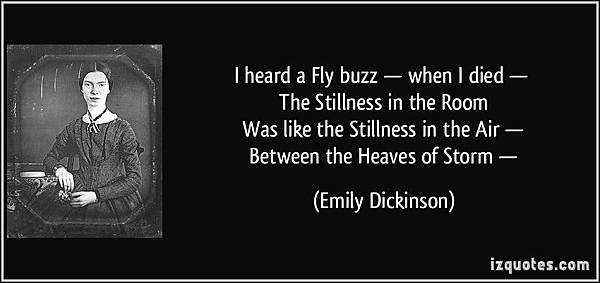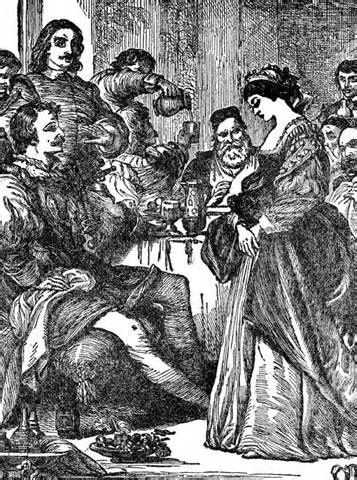man-
manipulate
manual
manner
fra- 破碎
fragile
fragility
fragileness
encounter NOUN
1.a meeting, especially one that was not planned
snarl VERB
1.if an animal such as a dog or a lion snarls, it makes anangry sound in its throat and shows its teeth


--> Old Testament

--> Cain & Abel & Seth
Emily Dickinson--Success is counted sweetest

The taming of shrew-- William Shakespeare

MOVIE:
單字:
1.Reverence (n.) [ˋrɛvərəns]
great respect and admiration for someone or something
e.g. The old queen was held in great reverence.
2. Versatile (a.) [ˋvɝsət!]
someone who is versatile has many different skills
e.g. The potato is an extremely versatile vegetable.
3. Amateurs (n.) [ˋæmə͵tʃʊr]
an amateur from Old French and ultimately from Latin amatorem nom
e.g. The young politician is an amateur at manipulating public opinion.
4. Adversary (n.) [ˋædvɚ͵sɛrɪ]
a country or person you are fighting or competing against
e.g. The once friendly countries became adversaries in the war.
5. Hostility (n.) [hɑsˋtɪlətɪ]
hostility is a form of angry internal rejection or denial in psychology. It is a part of personal construct psychology, developed by George Kelly. In everyday speech it is more commonly used as a synonym for anger and aggression
e.g. We had no hostility toward the new neighbor.
6. Indecisive (a.) [͵ɪndɪˋsaɪsɪv]
unable to make clear decisions or choices
e.g. A weak and indecisive leader.
7. Precarious (a.) [prɪˋkɛrɪəs]
a precarious situation or state is one which may very easily or quickly become worse
e.g. Her health remained precarious, despite the treatment.
8. Transaxtion (n.) [trænˋzækʃən]
a transaction is an agreement, communication, or movement carried out between separate entities or objects, often involving the exchange of items of value, such as information, goods, services, and money. It is still a transaction if you exchange the goods at one time, and the money at another. This is known as a two part transaction, part one is giving the money, part two is receiving the goods
e.g. He attends to the transaction of important business himself.
9. Tribute (n.) [ˋtrɪbjut]
atribute is wealth, often in kind, that one party gives to another as a sign of respect or, as was often the case in historical contexts, of submission or allegiance. Various ancient states, which could be called suzerains, exacted tribute from areas they had conquered or threatened to conquer
e.g. Many conquered nations had to pay tribute to the rulers of ancient Rome.
10. Formidable (a.) [ˋfɔrmɪdəb!]
very powerful or impressive, and often frightening
e.g. A formidable prospect lies ahead of him.
11. Oligarchy (n.) [ˋɑlɪ͵gɑrkɪ]
oligarchy is a form of power structure in which power effectively rests with a small number of people. These people could be distinguished by royalty, wealth, family ties, corporate, or military control. Such states are often controlled by a few prominent families who pass their influence from one generation to the next
e.g. Eventually oligarchy took over from democracy.
12. Stranglehold (n.) [ˋstræŋg!͵hold]
a chokehold or choke is a general term for grappling hold that critically reduces or prevents either air or blood from passing through the neck of an opponent. The restriction may be of one or both and depends on the hold used and the reaction of the victim
e.g. Just a few firms have a stranglehold on the market for this software.
13. Manever (v.) [məˋnuvɚ]
a movement performed with care and skill
e.g. Careful driver will often stop talking before carrying out a complex.
14. Vengeance (n.) [ˈvendʒəns]
the act of harming or killing someone because they have done something bad to you
e.g. Cain shall suffer sevenfold vengeance.
15. Caulk (v.) [kɔk]
to fill the spaces between pieces of wood on a boat or around the edge of a window with a special substance that keeps water out
e.g. Shipbuilders caulk wooden boats with oakum and tar.
16. Dam (v.) [dæm]
to stop a river or stream from flowing by building a dam across it;to control your feelings so that you do not show them
e.g. The wellsprings of the deep were dammed.
17. Whinge (v.) [wɪndʒ]
to complain in an annoying way
e.g. Stop whingeing about the situation and accept.
18. Ebb (v.) [eb]:if the tide ebbs, the ocean’s level on a coast gradually becomes lower. A more usual word is go out
e.g. The water ebbed.
19. Covenant (n.) [ˈkʌvənənt]
a formal agreement or promise
e.g. I will set up my covenant with you.
20. Wellspring (n.) [ˈwelˌsprɪŋ]
the source of a large or continuous supply
e.g. All the wellspring of the great deep burst.
21. Perish (v.) [ˈperɪʃ]
to die, usually because of an illness or something that happens suddenly;to stop happening or existing
e.g. Everything on the earth shall perish.
22. Quickening (a.) [ˈkwɪk(ə)nɪŋ]
becoming faster
e.g. All that had the quickening breathe of life.
23. Eventide (n.) [ˈivənˌtaɪd]
the end of the day; evening
e.g. The dove came back to him at eventide.
24. Bawl (v.) [bɔl]
to speak to cry loudly
e.g. They could hear a baby bawling somewhere.
25. Utterance (n.) [ˈʌt(ə)rəns]
a statement;a word or phrase that someone speaks
e.g. A low grumble or indistinct utterance.



 留言列表
留言列表


